![]()
Astounding Images And Shocking Secrets From Inside The Great Pyramid
The mystery coffer
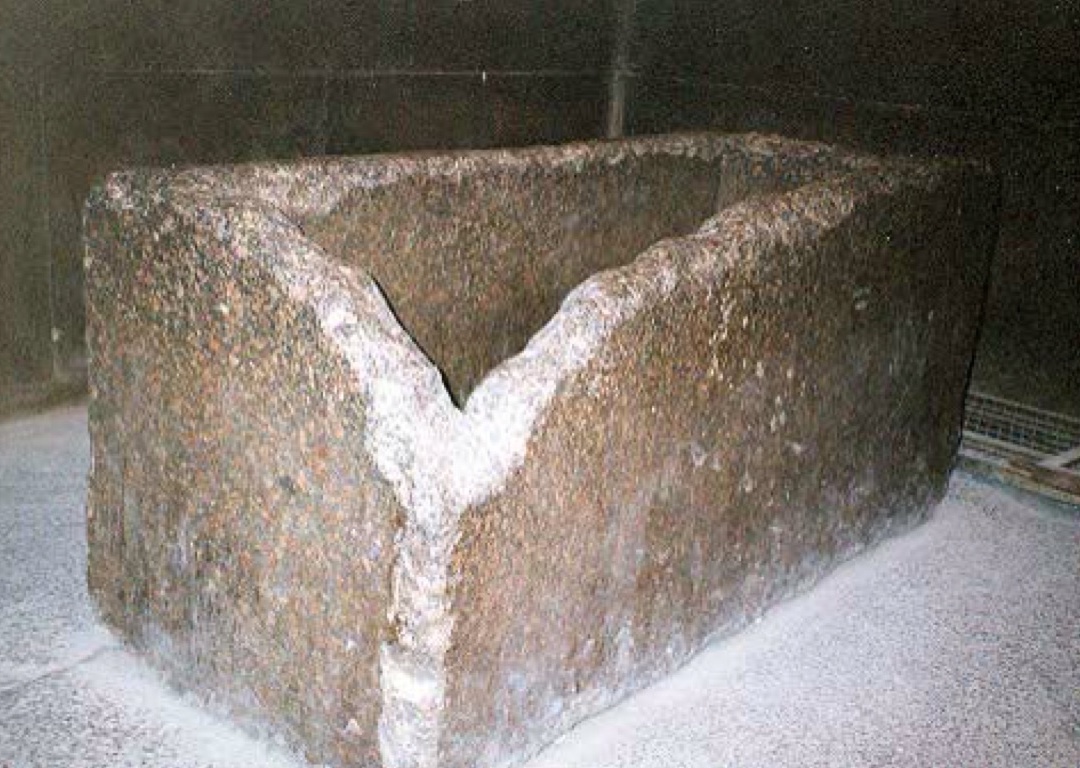 Image Source: Haiku Deck
Image Source: Haiku Deck
A large granite coffer was discovered inside the Great Pyramid of Giza. Although unremarkable at the time, after closer inspection the archaeologists realised it was too large to pass through the narrow entrance passage which raises the question of how the coffer ended up in the pyramid in the first place?
The mystery graffiti
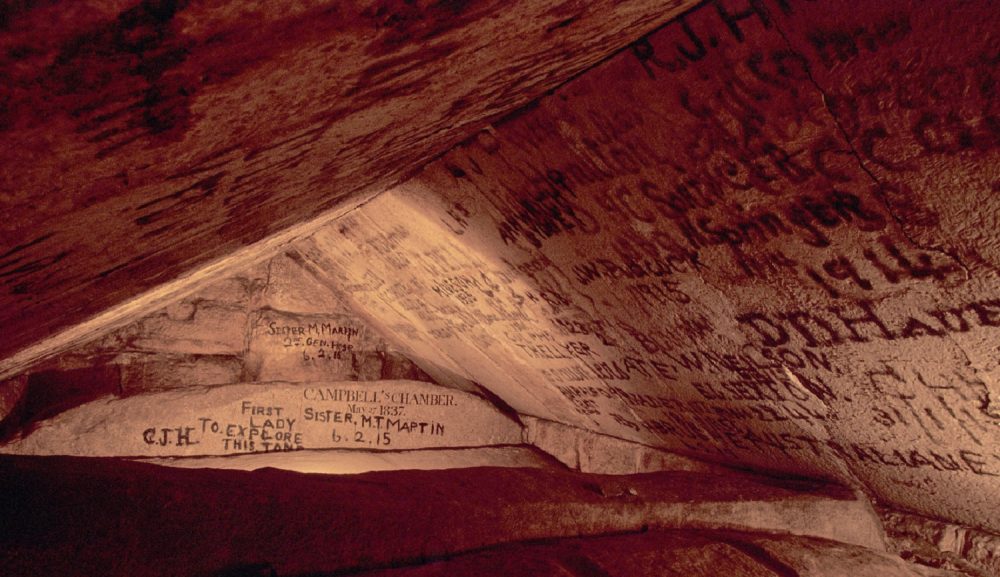 Image Source: curiosmos.com
Image Source: curiosmos.com
Inside the chambers were ancient graffiti marks featuring markers directional notation and the names of the work gangs that built the structure. Strangely, these names all contained a variant of Pharaoh Khufu’s name. This discovery confirmed that it was Pharaoh Khufu who had commissioned and built the Great Pyramid of Gita.
The bare walls
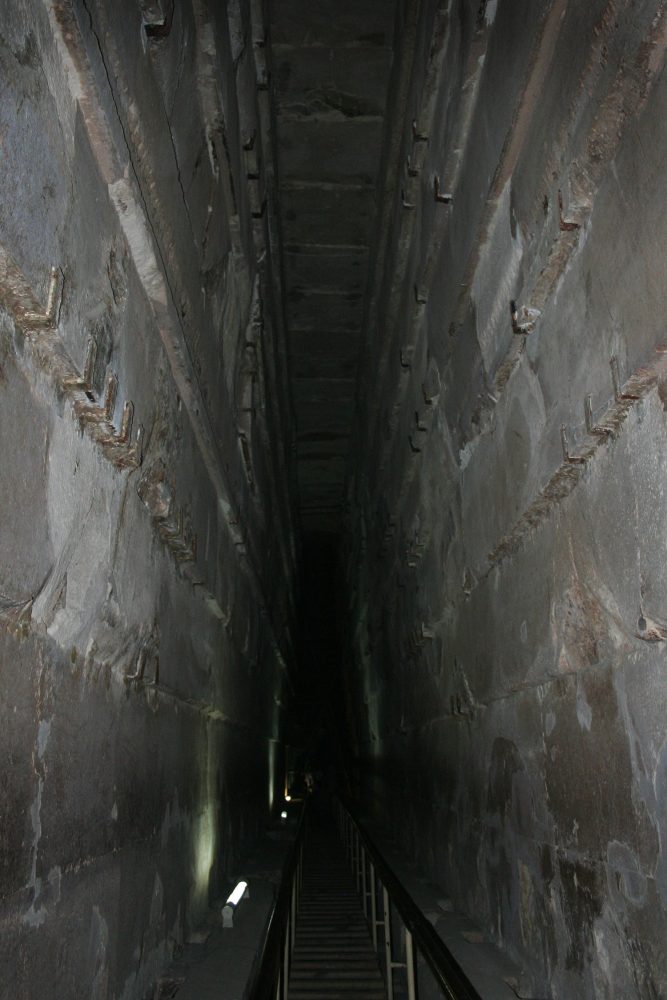 Image Source: curiosmos.com
Image Source: curiosmos.com
In comparison to other famous ancient Egyptian tombs, The Great Pyramid of Giza lacks inscriptions or hieroglyphs. This provides further evidence for the debate that the pyramid was not built for the purpose of a tomb, as tombs were usually decorated with colourful scenes of the afterlife and Egyptian deities.
The Robber’s Tunnel
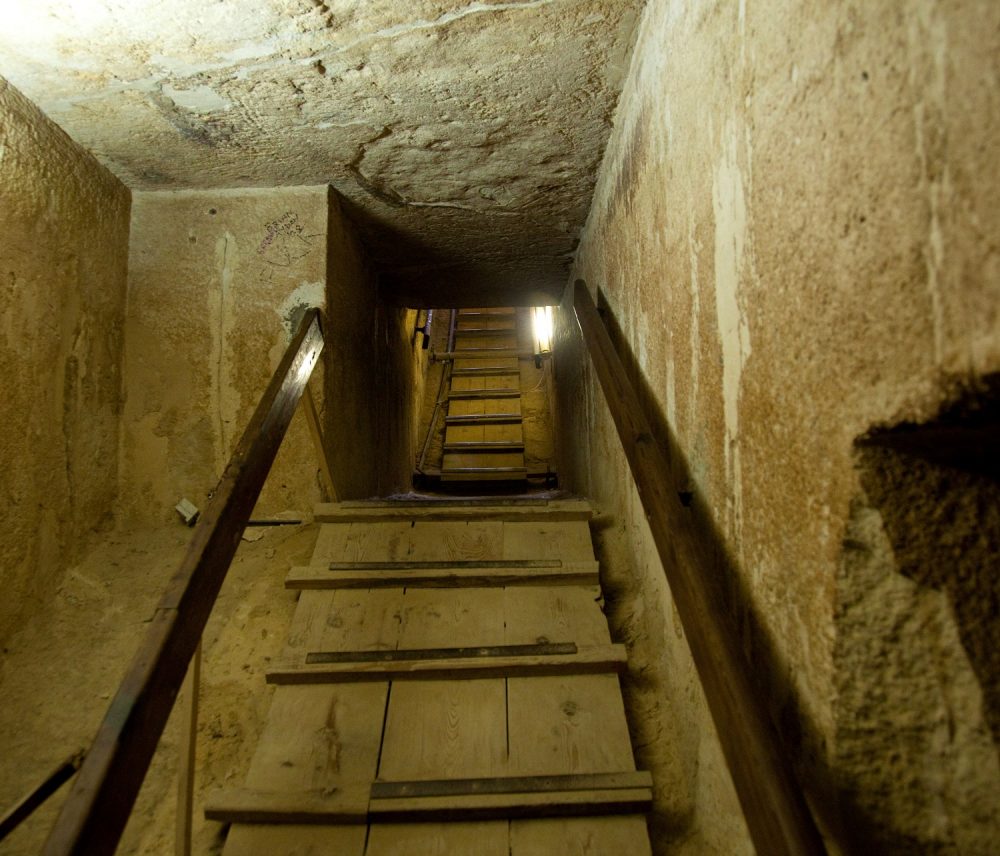 Image Source: curiosmos.com
Image Source: curiosmos.com
After the Pharaoh died and was buried in the Great Pyramid, the Egyptians sealed off the Ascending Passage…but this didn’t stop tomb robbers digging their own tunnel to get into the pyramid. This tunnel has now become the route used by tourists to enter the pyramid.
The fake inscription
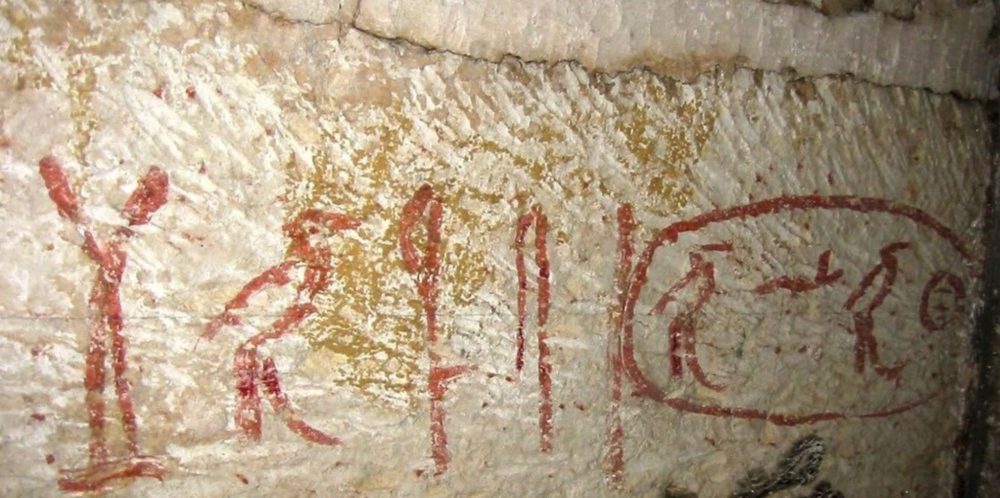 Image Source: curiosmos.com
Image Source: curiosmos.com
Although the walls of the King’s Chamber is almost completely bare, there is one single inscription on the wall marked in red paint. This was discovered by Vyse when he was exploring the air shafts located above the King’s Chamber. However, many experts have suggested this marking is fake…but who did it?
The strange temperature conditions
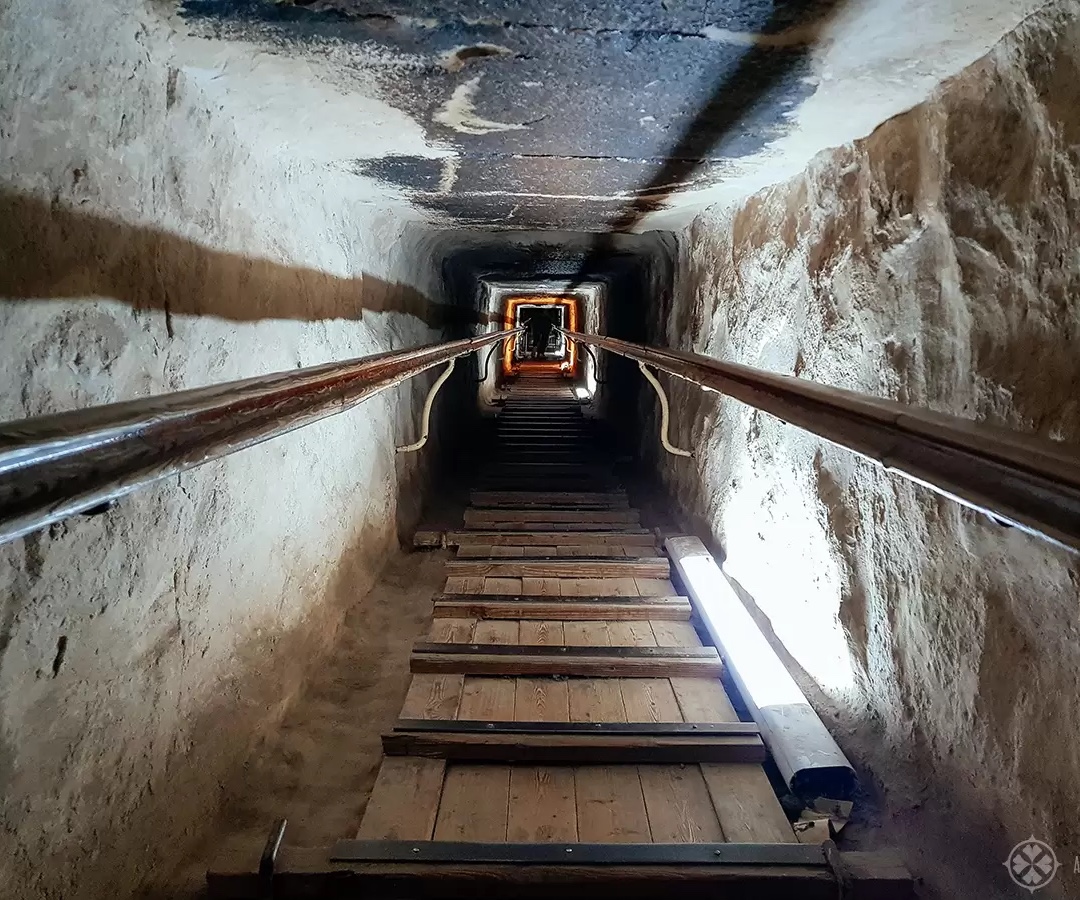 Image Source: Annees de pelerinage
Image Source: Annees de pelerinage
Despite the ever-changing temperatures and weather conditions in Egypt, the Great Pyramid of Giza remains at a constant temperate of 20°C. This is due to the advanced design of the structure, with experts being baffled as to how the Egyptians came up with such an impressive idea all those years ago.
The centre of the earth
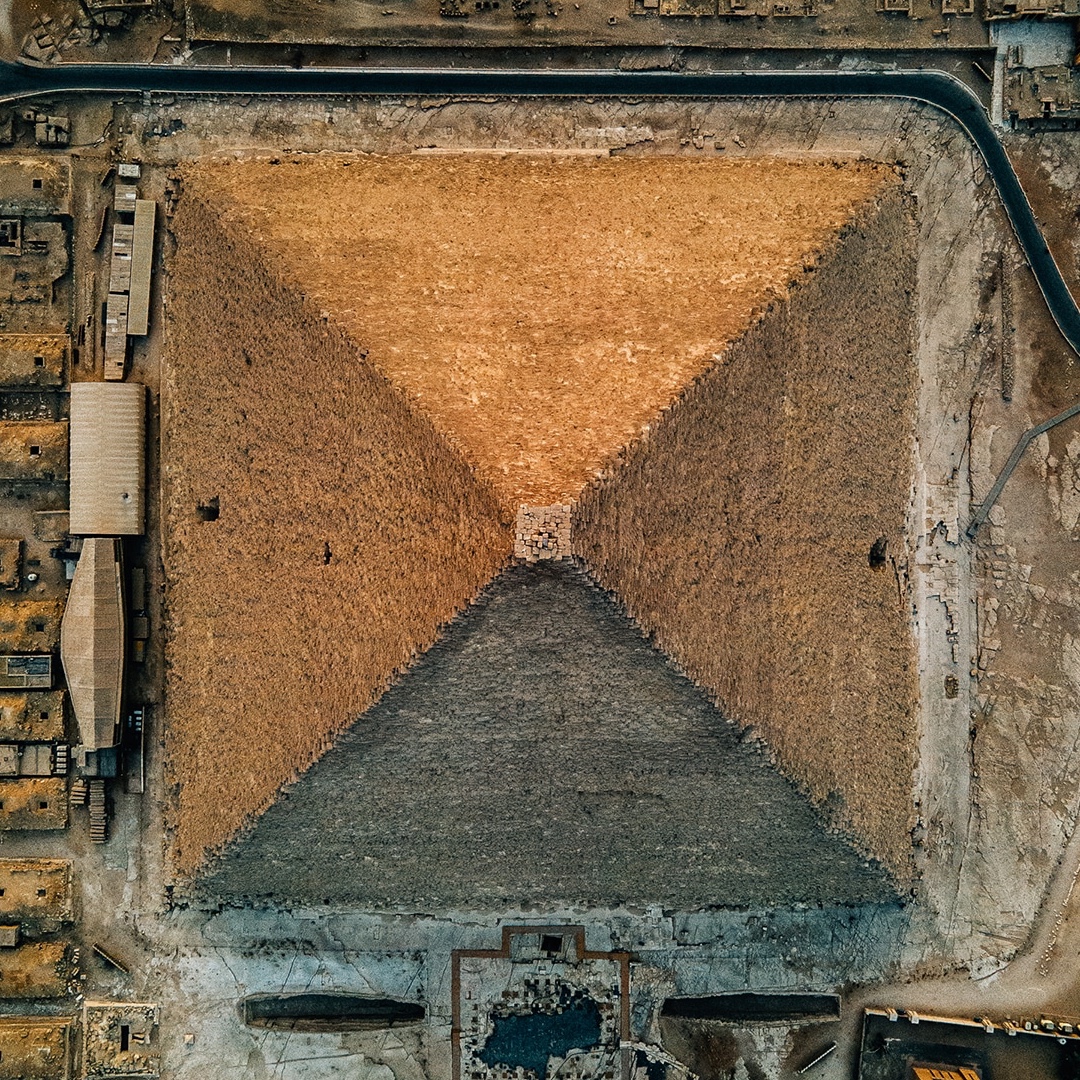 Image Source: My Modern Met
Image Source: My Modern Met
In 1877 it was discovered that the Great Pyramid is located exactly in the centre of all the planet’s landmass. Not only that, but it is also situated exactly where the sun sets with the light being directed to the King’s Chamber where the Pharaoh was laid to rest.
The Big Void
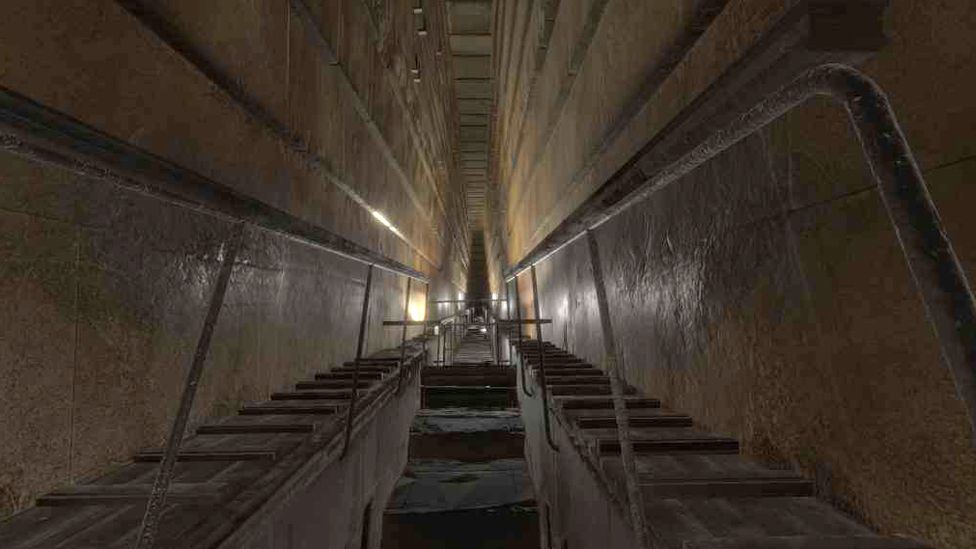 Image Source: BBC
Image Source: BBC
In 2017, scientists discovered a massive empty space nearly 100-feet-long at the heart of the Great Pyramid which they named ‘the big void’. Even to this day, nobody has figured out what the purpose of this space was when the pyramid was built all those years ago.
The empty chamber
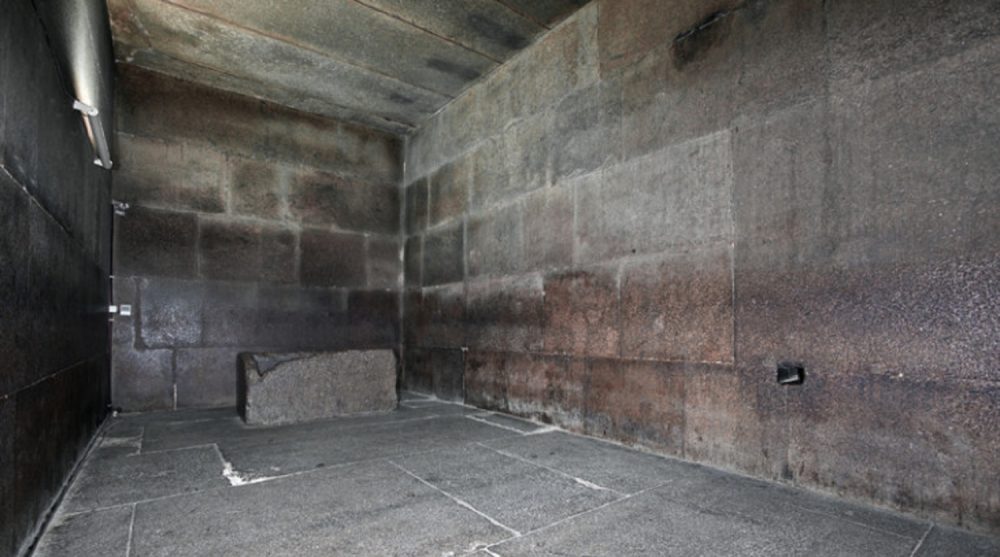 Image Source: curiosmos.com
Image Source: curiosmos.com
The King’s Chamber is now an empty abandoned room, as experts believe that tomb robbers stole everything inside during the 9th century. This would have included the Pharaoh’s funeral offerings of treasure, weapons and armour. There is also a debate this his mummified body may also have been taken.
The mystery of the sarcophagus
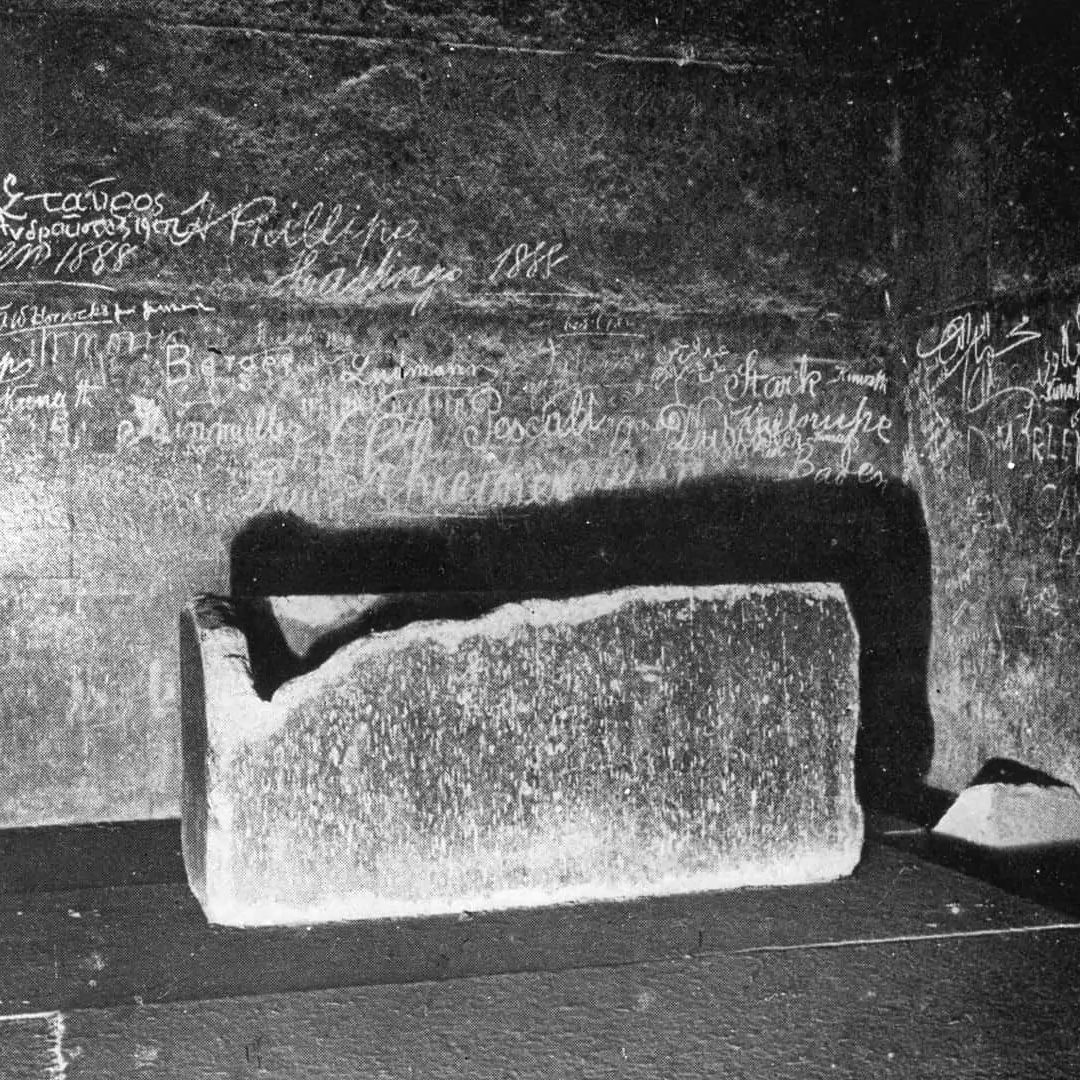 Image Source: facts.net
Image Source: facts.net
The sarcophagus inside the King’s Chamber is another clue to suggest that Pharaoh Khufu was buried there. However, it appears to be an unfinished piece of work. Experts have a theory that the original sarcophagus got lost when being transported to the pyramid, so they replaced it with a new one that was left incomplete after the Pharaoh died.
The path to heaven
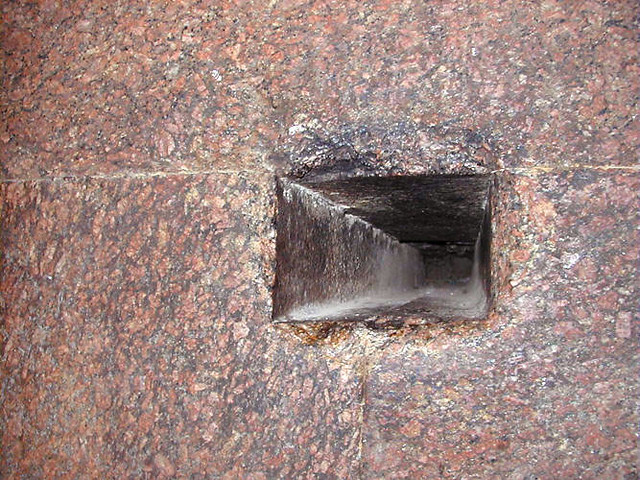 Image Source: Flickr
Image Source: Flickr
Pharaoh Khufu’s tomb supposedly lies in the King’s Chamber, with two shafts going through the North and south walls. Some experts have suggested that these shafts were built to allow certain stars to be visible from the chamber, whereas others believe they were to lead the Pharaoh’s soul to heaven.
Where is the mummy?
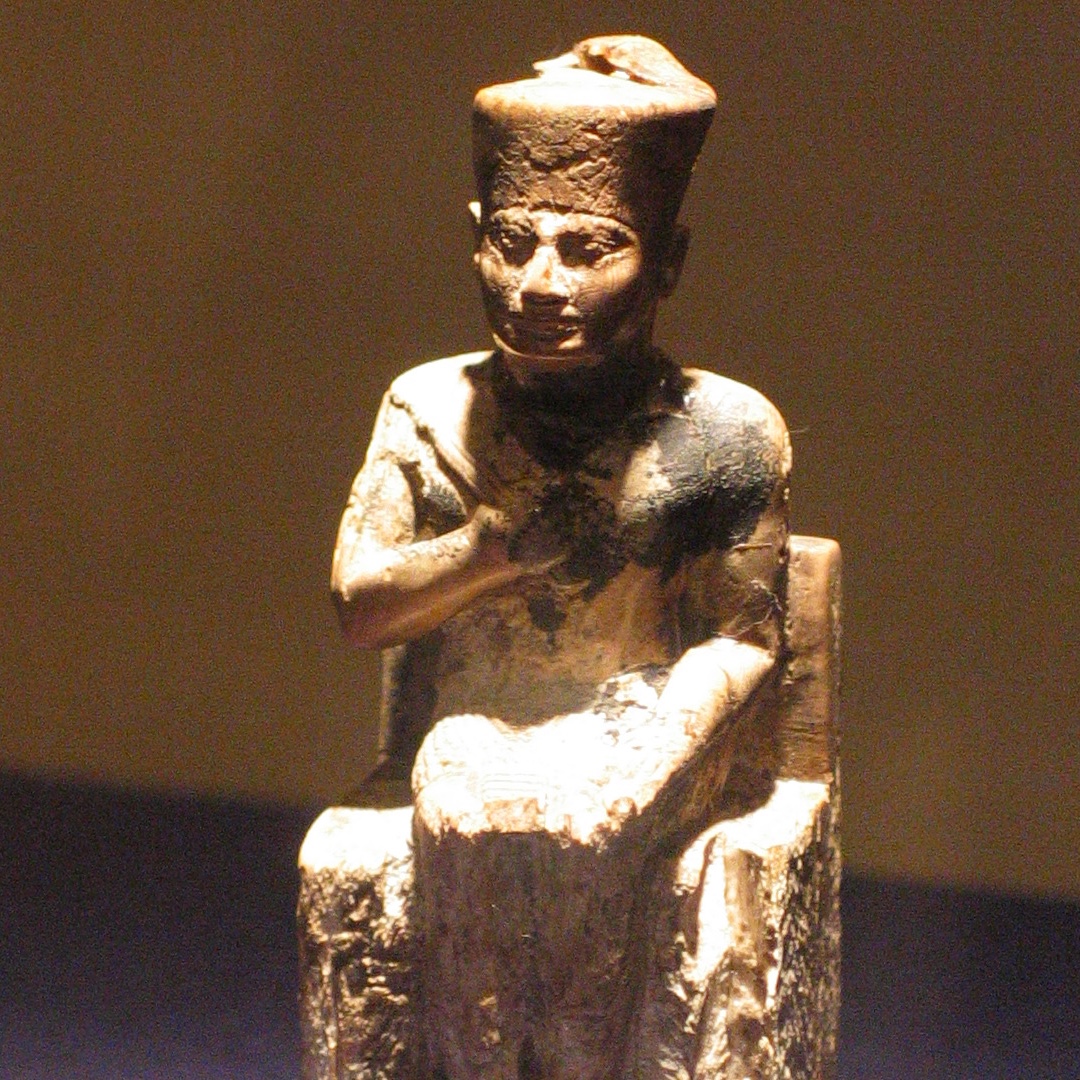 Image Source: Wikimedia Commons
Image Source: Wikimedia Commons
For decades, experts have been trying to figure out why the Great Pyramid of Giza was built in the first place. They have come to conclusion that the pyramid was most likely built as the tomb for Pharaoh Khufu, but nobody has ever discovered a mummy inside and so the mystery remains unsolved.
A missing body
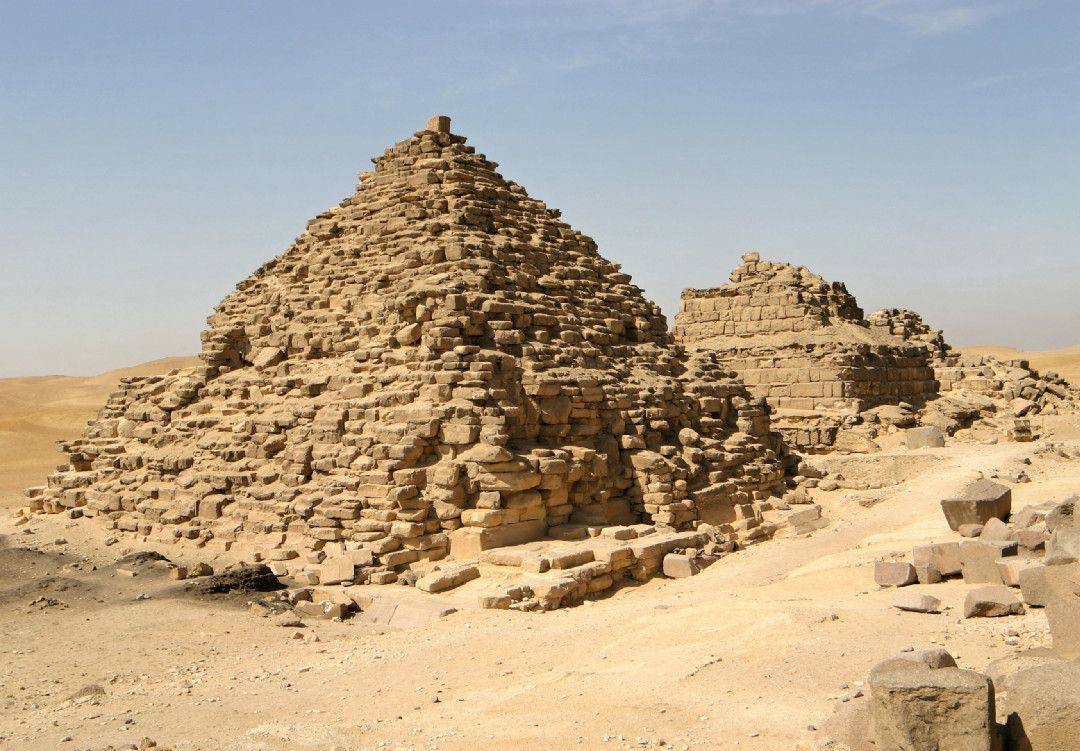 Image Source: Virtual Travel
Image Source: Virtual Travel
On the South side the Great Pyramid of Giza stands a trio of pyramids which have been named the Queens’ Pyramids. A fourth pyramid was also found, but it had been badly damaged by the time of the discovery. Inside one of these pyramids if the tomb of Pharaoh Khufu’s mother. However, no one ever found the body...
Is there really a Queen’s Chamber?
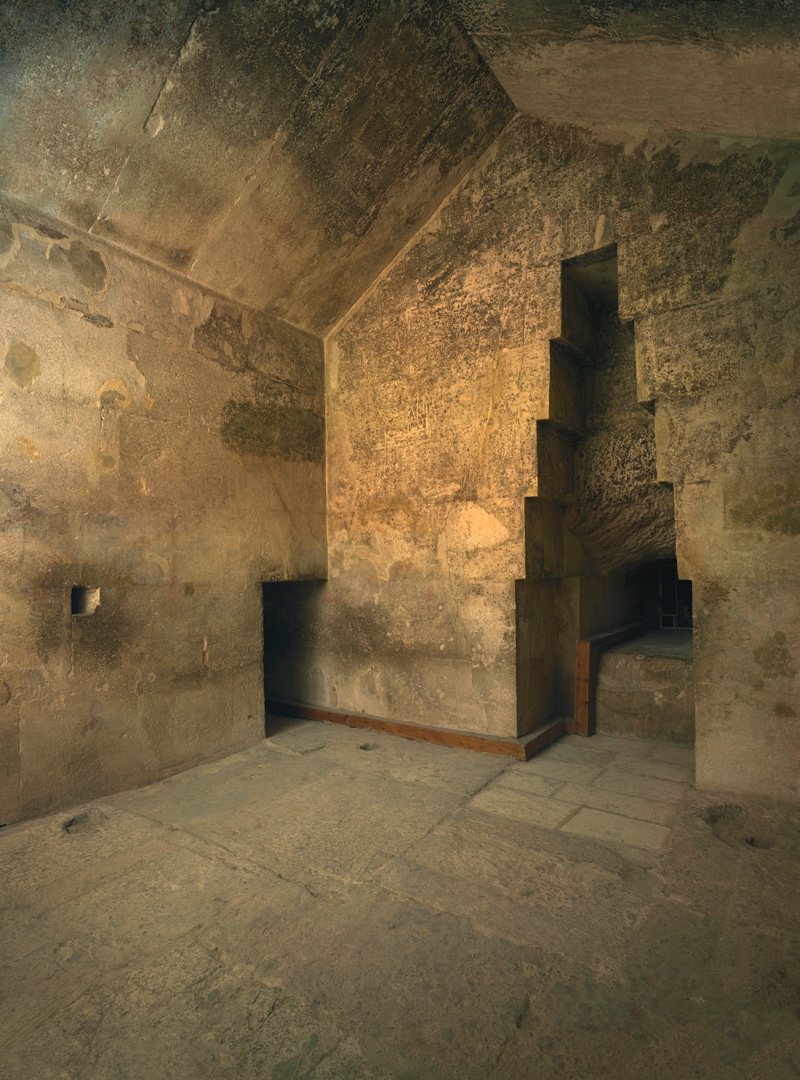 Image Source: drhawass.com
Image Source: drhawass.com
When it was first discovered, archeologists gave it the name of ‘the Queen’s chamber’ simply because they assumed that only the Pharaoh’s wife could share the pyramid. However, similarly to the King’s Chamber, it was completely empty which questions if the chamber was even designed to be a tomb.
Strange markings
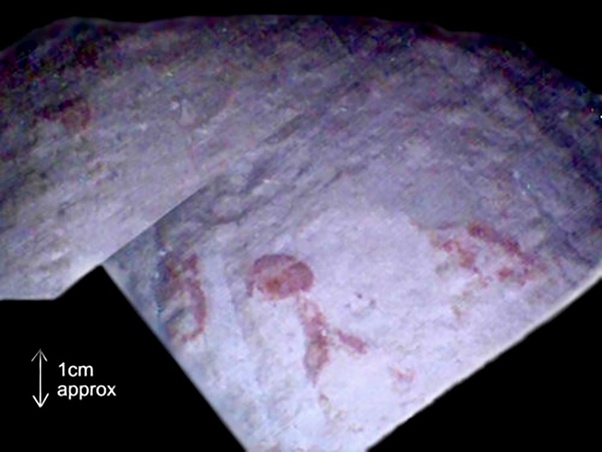 Image Source: curiosmos.com
Image Source: curiosmos.com
During the 2011 expedition, a robot explorer was sent up one of the long narrow shafts located in the Queen’s Chamber. It was equipped with a fiberoptic camera which was inserted through a hole in a block of stone which was made by other researchers in a previous expedition. On the other side of the door, they found mysterious markings in red paint…
The mysterious doors
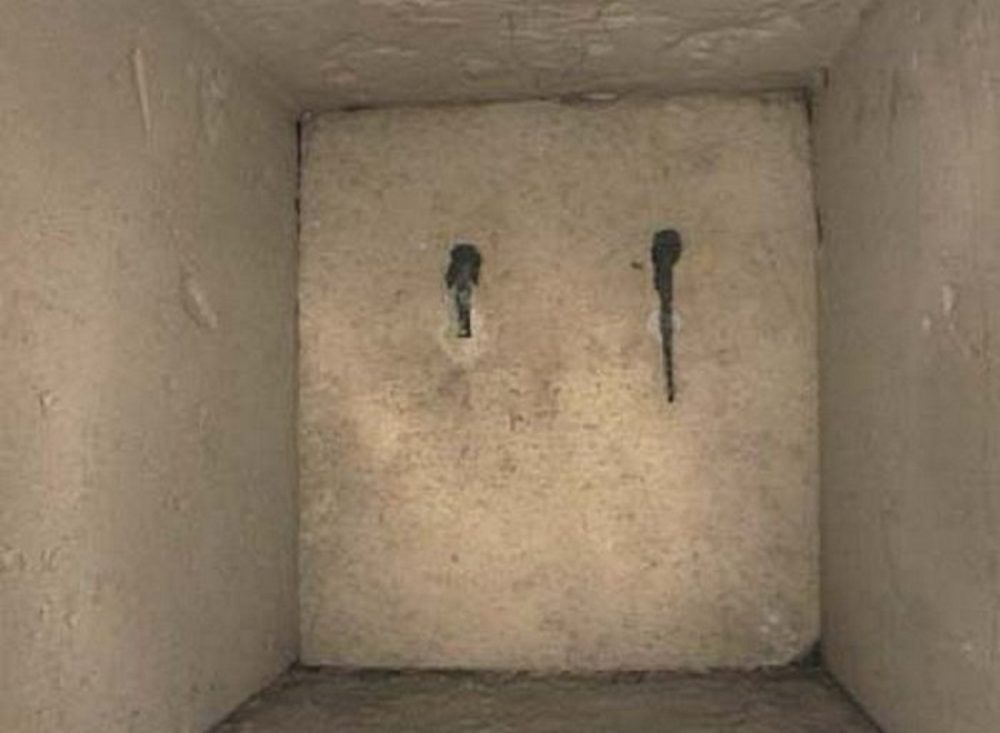 Image Source: curiosmos.com
Image Source: curiosmos.com
The Great Pyramid of Giza has three large swivel doors that each weigh over 20 tons. The enormous doors have the exact dimensions to ensure they fit perfectly into the wall, which is still a mystery to architects today. The design ensures the door can be opened with one hand from the inside, but it is impossible to open it from the outside.
The discovery of the chambers
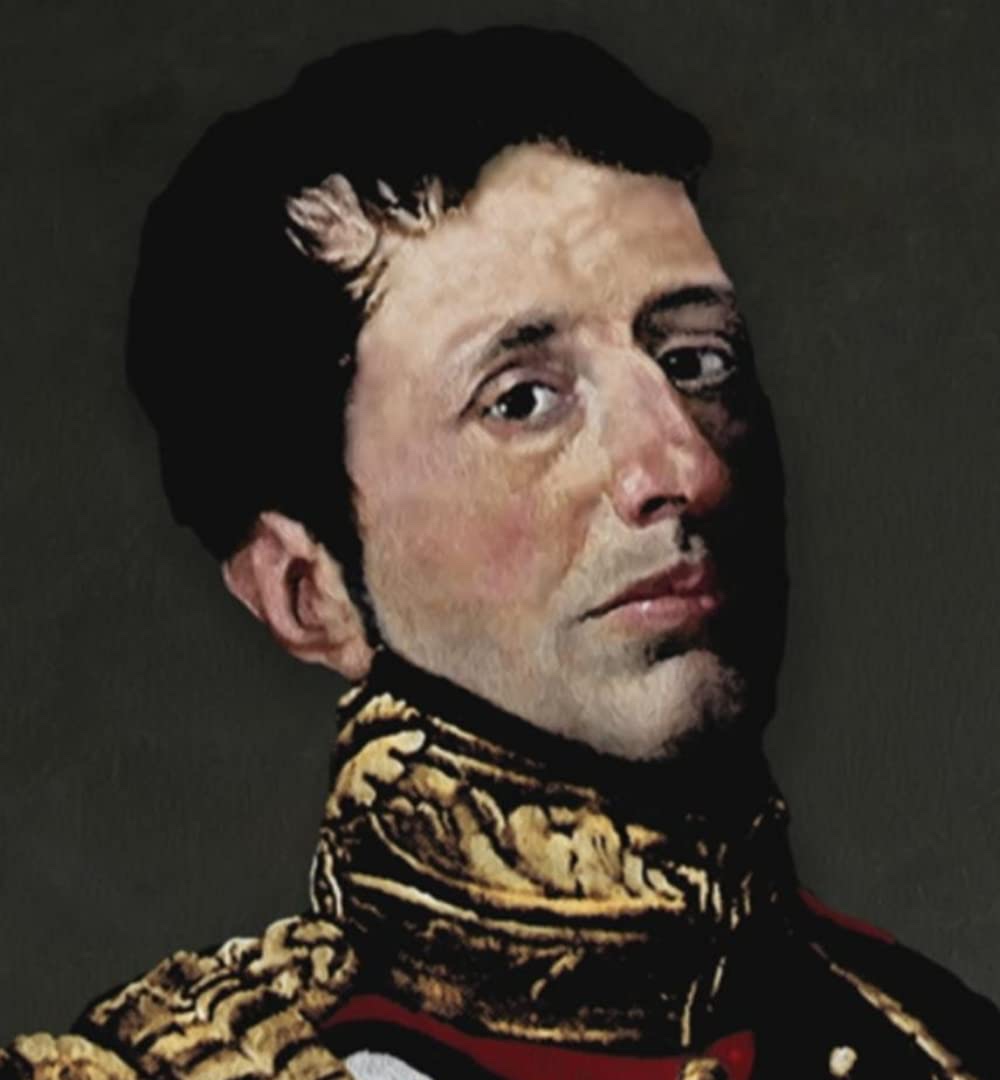 Image Source: IMDb
Image Source: IMDb
Colonel Howard Vyse, a British soldier and Egyptologist, used gunpowder archaeology inside of the Great Pyramid to discover the 3 chambers. The lowest chamber is cut into the bedrock, upon which the pyramid was built, but remained unfinished. The King's Chamber and the Queen's Chamber are located higher up within the pyramid structure.
Who build the Great Pyramid of Giza?
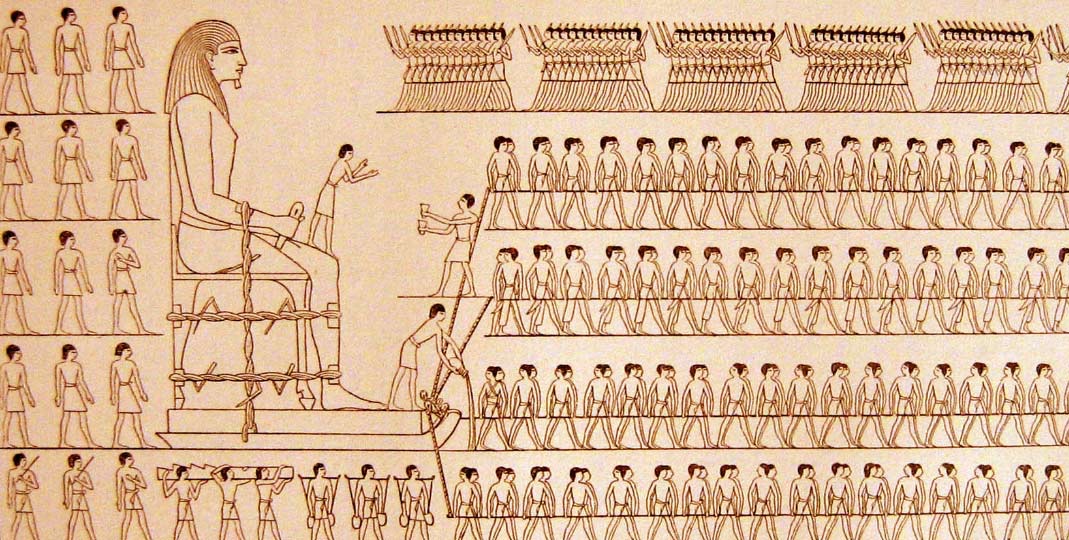 Image Source: Sci.News
Image Source: Sci.News
Ancient tales and stories from the bible suggest that slaves were forced into building the Great Pyramid. However, historians have since discovered that paid workers were recruited to construct this magnificent wonder. In return, they were well-fed and provided with housing.
The missing boats
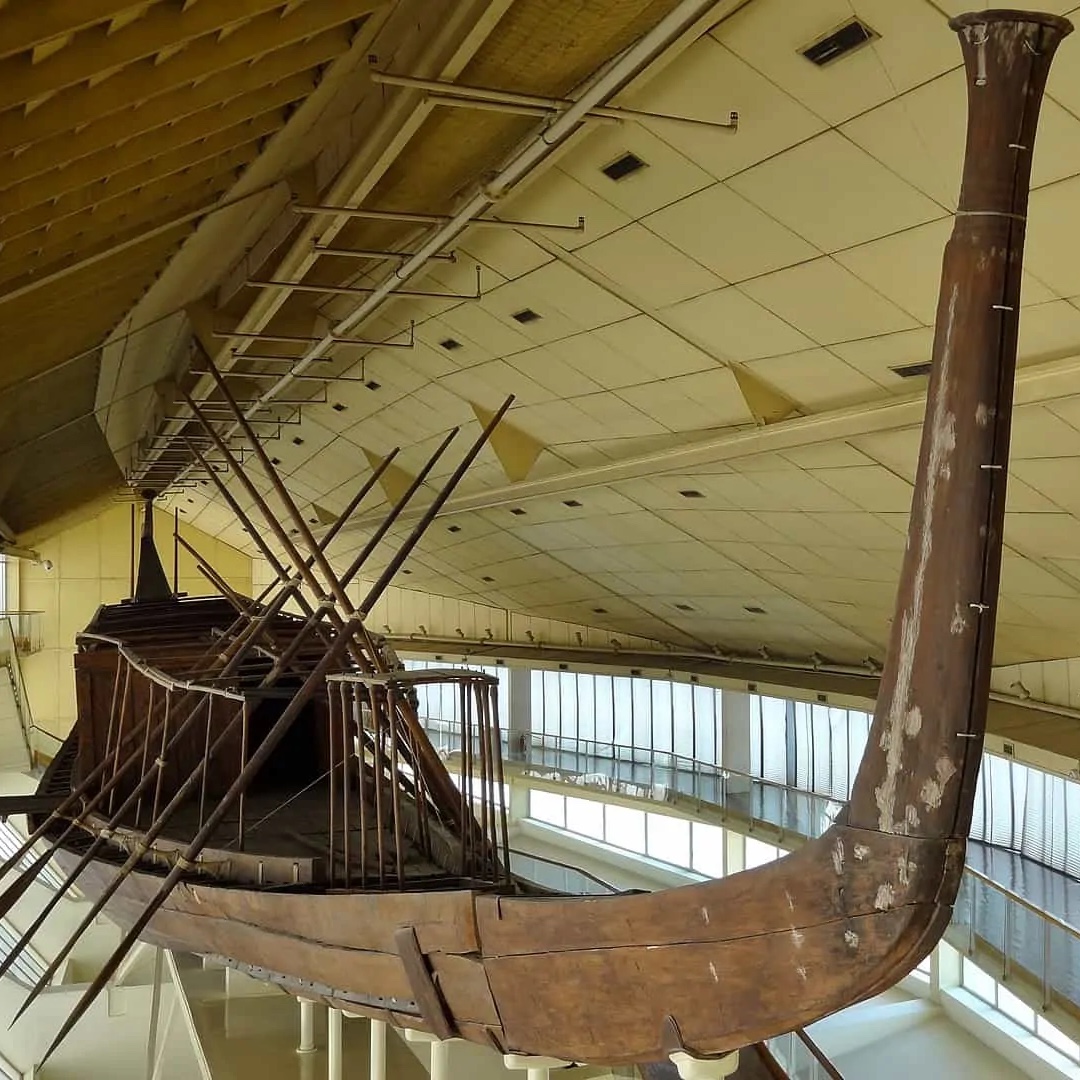 Image Source: facts.net
Image Source: facts.net
Dotted around the Great Pyramid were pits for boats, but archaeologists never located the actual vessels as they were believed to be stolen or destroyed over time. However, in 1954 the damaged remains of a boat was discovered and they managed to reconstruct the original design.
The mystery shafts in the Queen’s Chamber
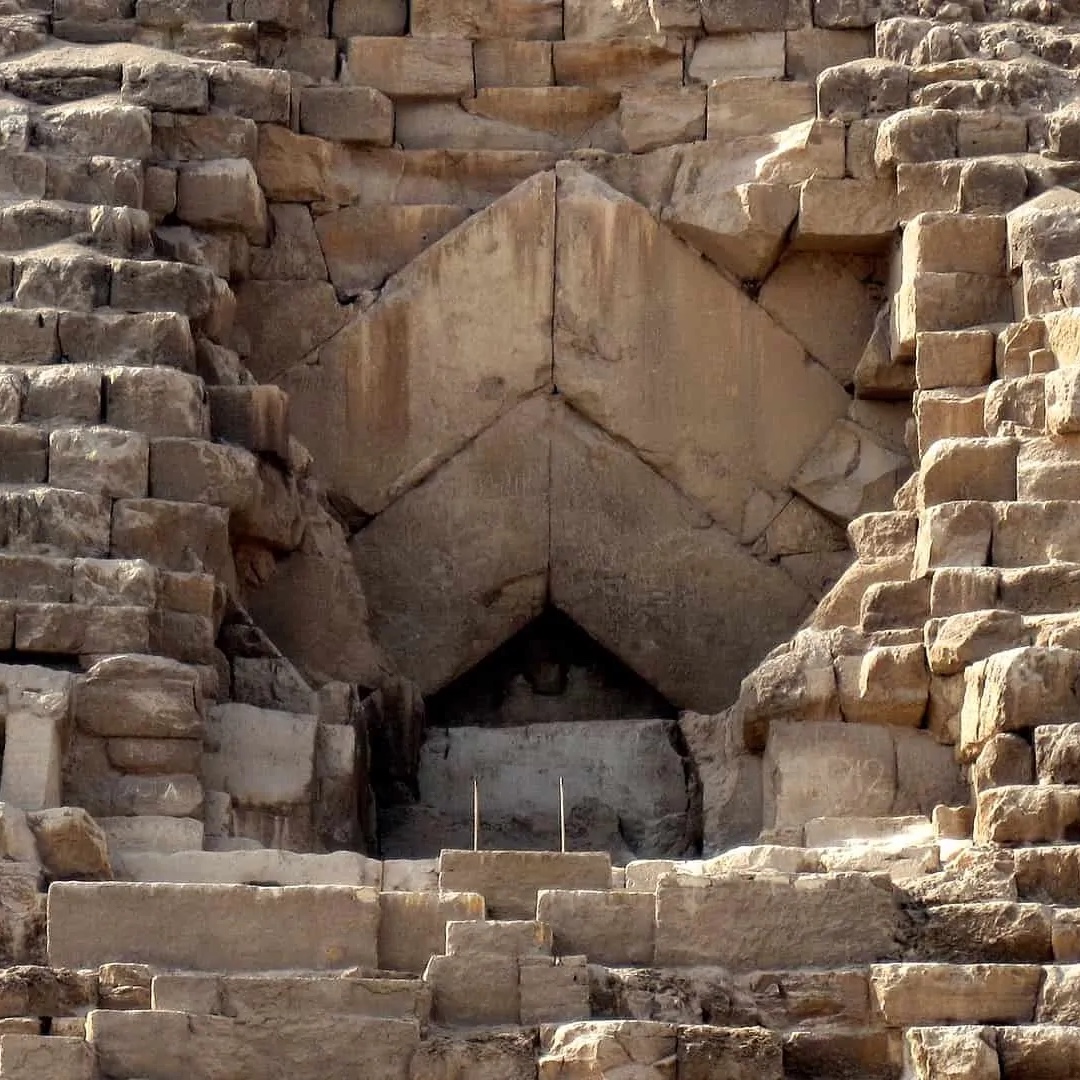 Image Source: facts.net
Image Source: facts.net
Just like the King’s Chamber, the Queen’s Chamber also has a shaft built into the North and south walls. It was assumed that these shafts served the same purpose as the ones discovered in the King’s Chamber, but in 1872 an archeologist discovered that the shafts didn’t lead to any of the pyramid’s outer faces and the purpose of these shafts still remain a mystery.
The Pharaohs’ curse
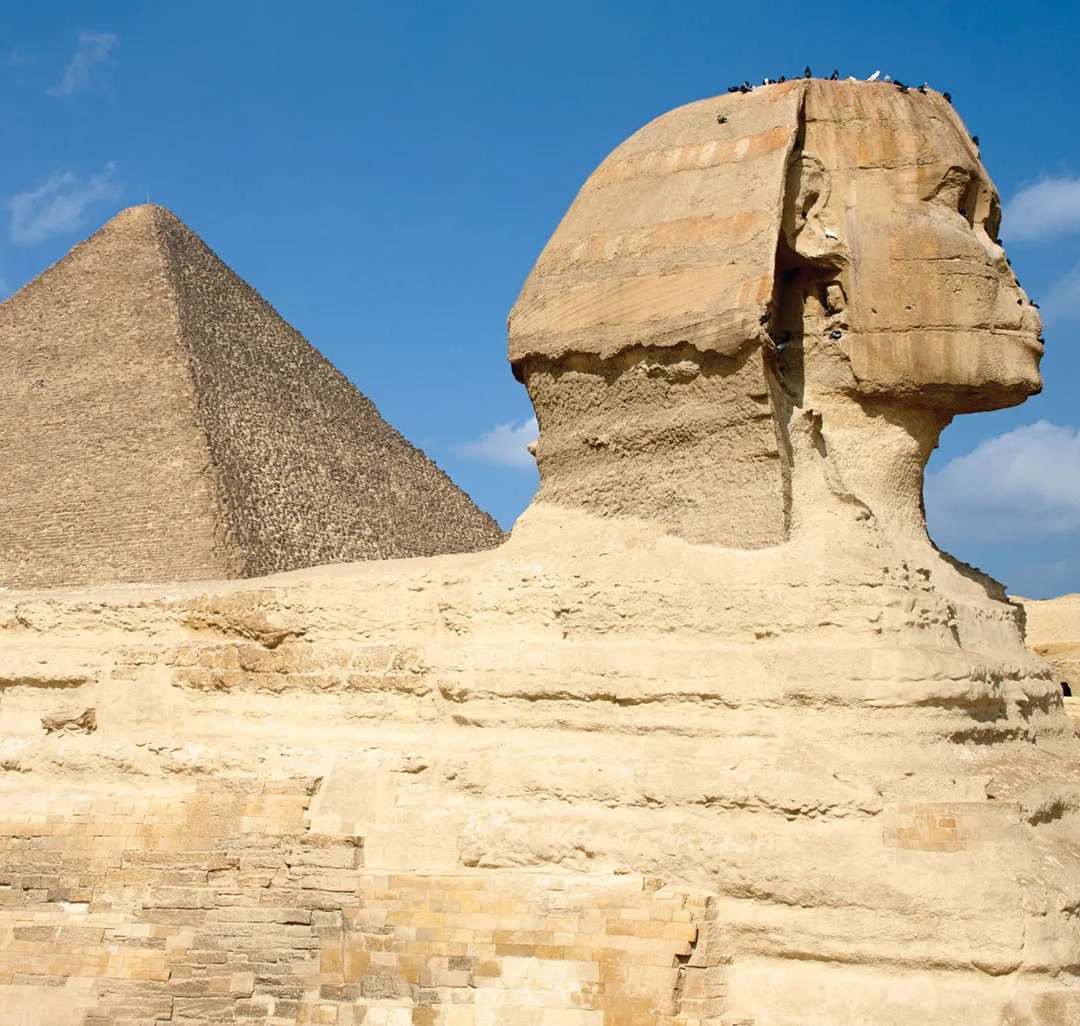 Image Source: Encyclopedia Britannica
Image Source: Encyclopedia Britannica
This curse is cast on anyone who disturbs the mummy of an ancient Egyptian Pharaoh and causes bad luck, illness or death. Egyptians still believe the curse to be real, claiming that it offers protection to the pyramids and the dead kings who lay there to rest, but scientists believe this coincidental illness is caused by bacteria.
A mystery or a miracle?
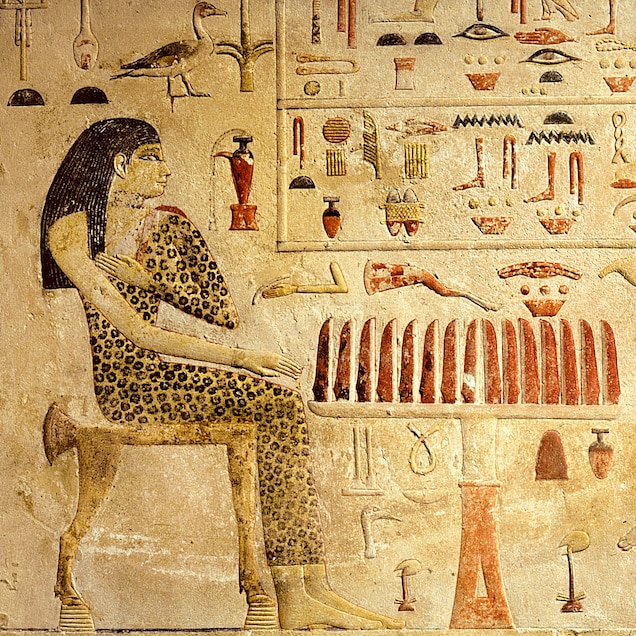 Image Source: National Geographic
Image Source: National Geographic
Although the Great Pyramid of Giza is an impressive wonder of the world, there is much debate on how it was even built using the tools and techniques available during ancient Egyptian times. Even with the use of modern technology and sophisticated machinery, it was be difficult to replicate these grand structures today.
How was it put together?
 Image Source: facts.net
Image Source: facts.net
To bind the stones together during construction, the workers used gypsum treated with heat. However, archaeologists cannot figure out how they found enough wood to burn as fuel for the process. Even to this day, scientists continue to test theories to solve the mystery.
The Great Sphinx of Giza
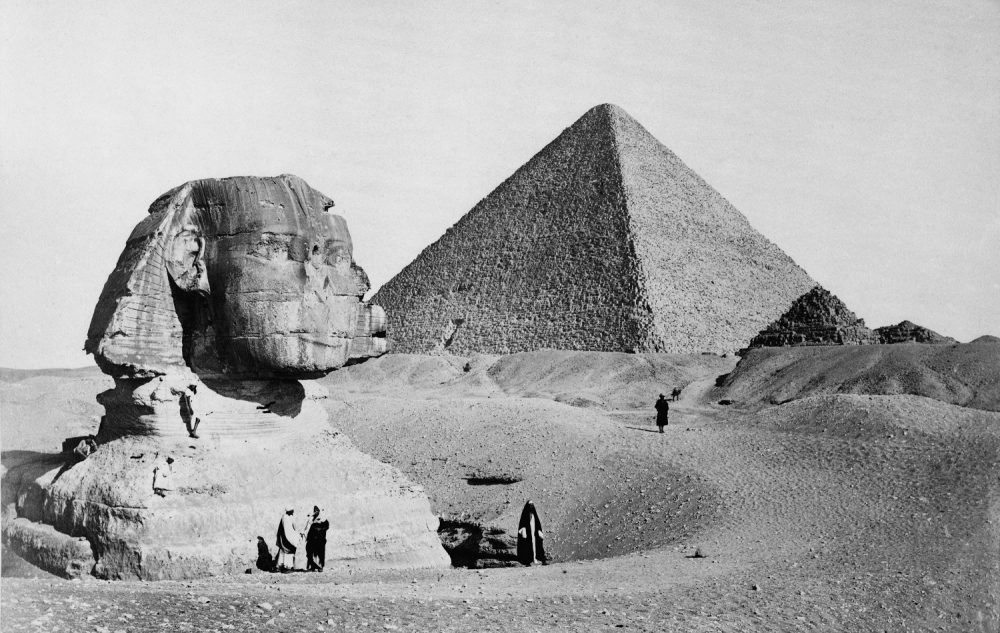 Image Source: curiosmos.com
Image Source: curiosmos.com
The Great Sphinx of Giza is a 4,500-year-old limestone statue situated near the Great Pyramid in Giza. Measuring 73 meters long and 20 meters high, it is one of the largest monuments in the world. Egyptians believe the Sphinx was built to protect the dead king, with the face of the Sphinx representing the face of the Pharaoh Khafra.
The Great Pyramid can tell time
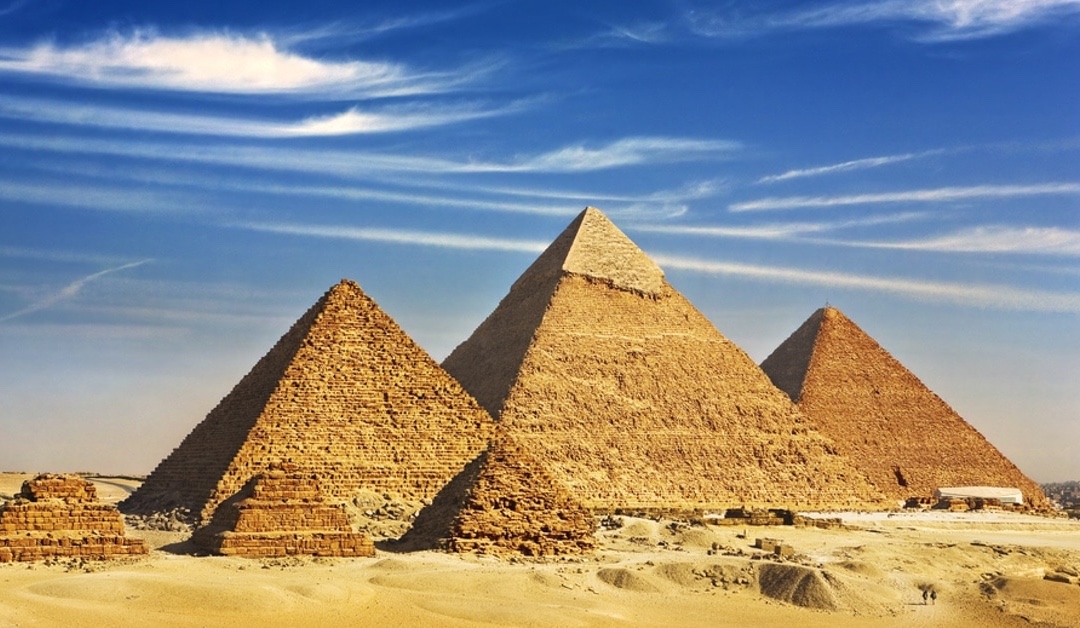 Image Source: My Modern Met
Image Source: My Modern Met
The Great Pyramid of Giza was designed to act as a sundial, with the shadows telling the hour of the day by falling on marks made in the stone. If that wasn’t impressive enough, it was also able to signal solstices and equinoxes which enabled ancient Egyptians to define the solar year.
How was it even possible?
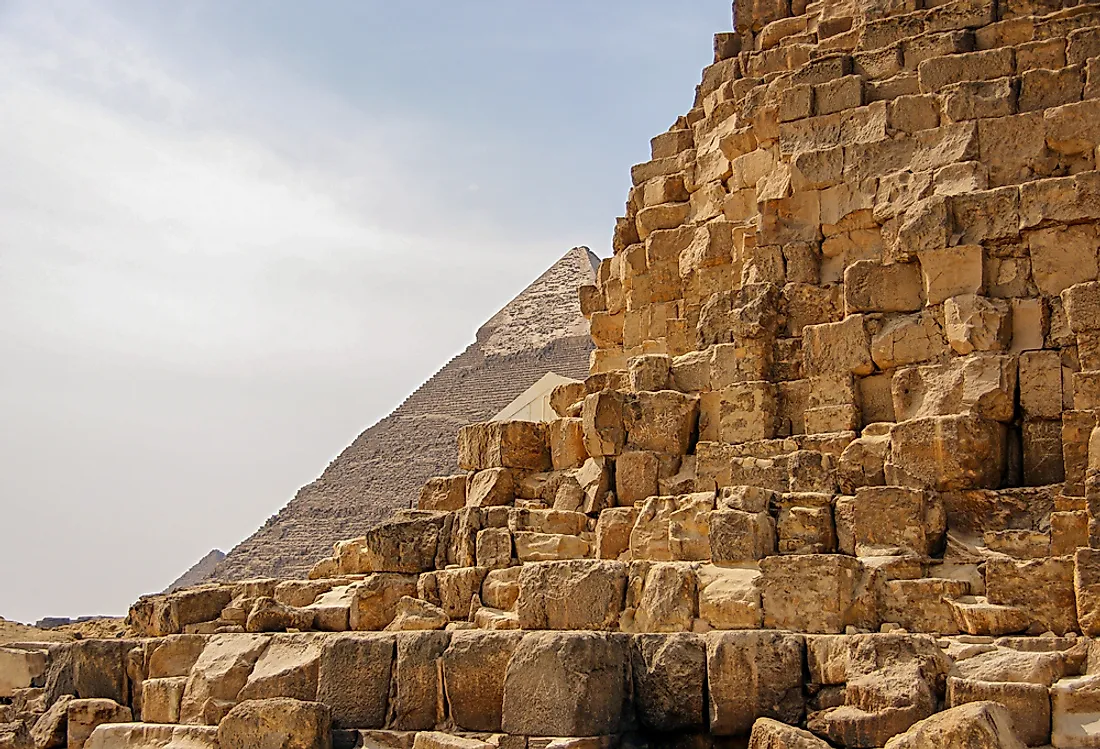 Image Source: World Atlas
Image Source: World Atlas
The Great Pyramid of Giza was completed in 20 years, which is impressive considering the size of the structure and the time period it was built. Egyptologists estimate that the workers would have had to set a stone between 2.5 and 15 tons every 2 minutes for the pyramid to have been finished in 20 years.
The only 8-sided pyramid in existence
 Image Source: CBC
Image Source: CBC
The Great Pyramid of Giza is the only 8-sided pyramid known to mankind. The 4 faces are slightly concave, which is only visible from above during the spring and autumn seasons. Each side covers an area of around 5.5 acres, with the base stretching out across 13 acres which could fit 10 football pitches inside it.
The surrounding tombs
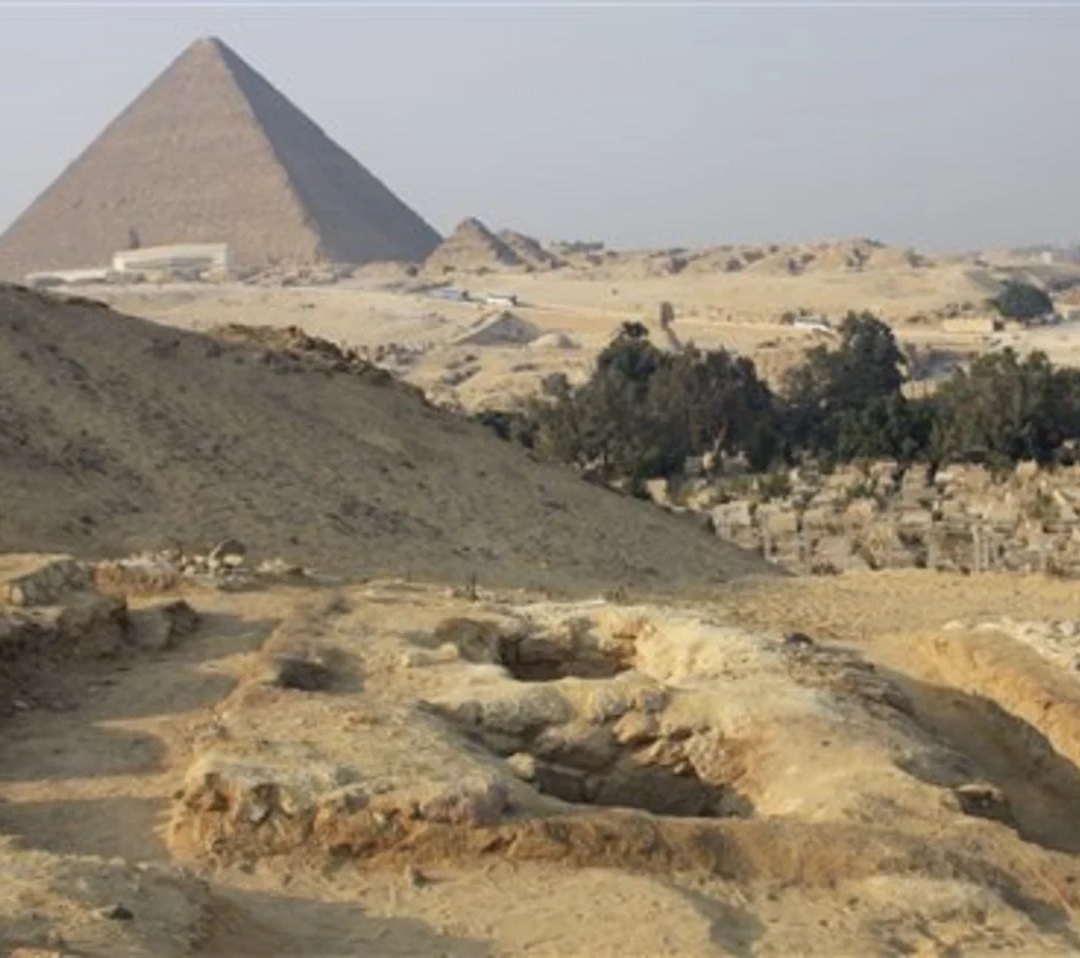 Image Source: NBC News
Image Source: NBC News
Further evidence to suggest that he Great Pyramid of Giza was built by paid workers are the tombs which surround it. Although these were nowhere near as elaborate as the tombs built for royalty, experts believe this is a sign of respect for their contribution to the construction of the pyramid.
The last one standing
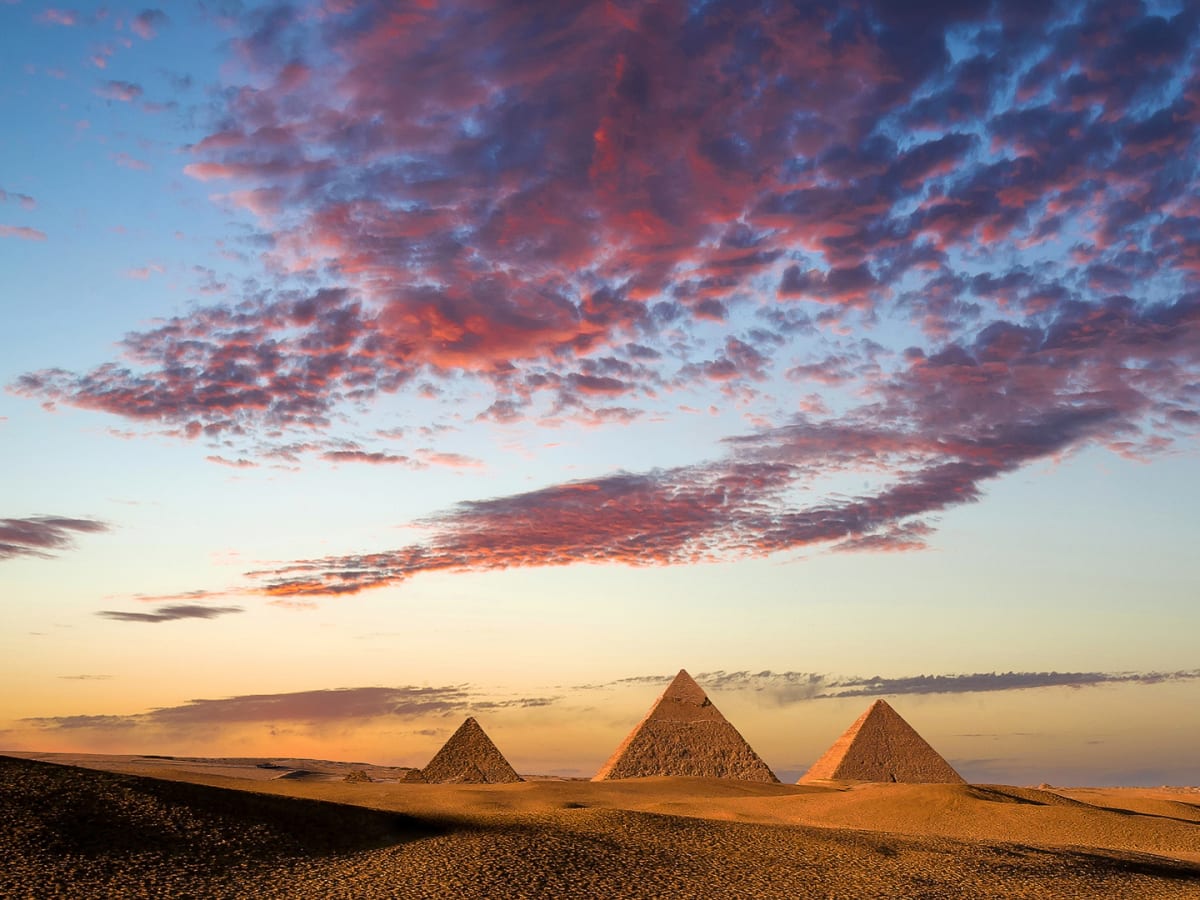 Image Source: history.com
Image Source: history.com
The Great Pyramid of Giza is not only the oldest of the Seven Wonders of the Ancient World, but it is the last one still in existence. Built across a period of 20 years in the 26th century BC, this grand structure stands at 481 feet tall and was the tallest man-made structure in the world for more than 3,800 years.
What else is there to discover?
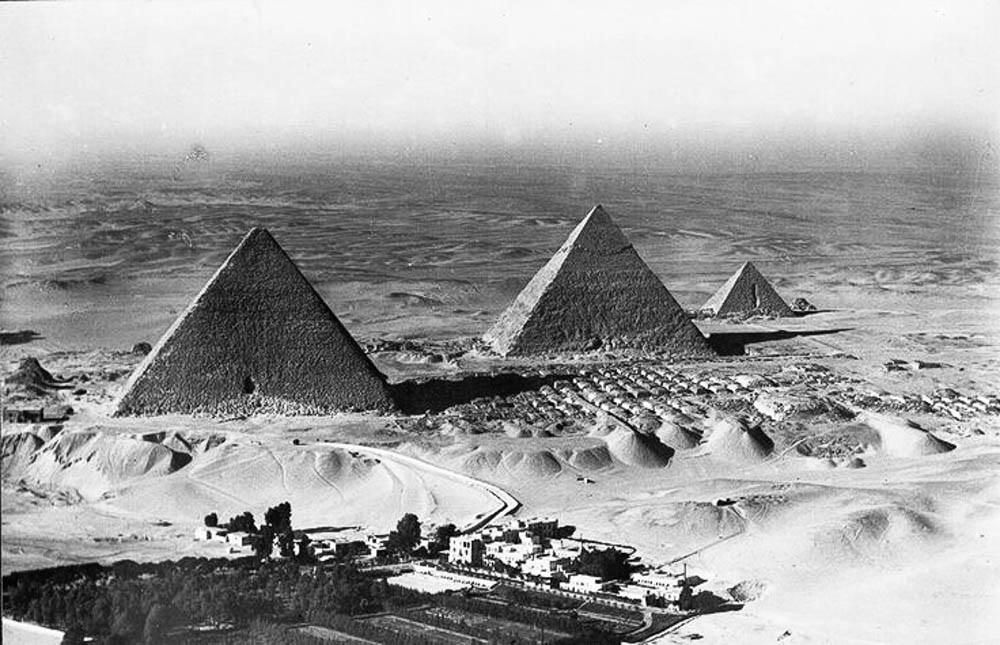 Image Source: Pinterest
Image Source: Pinterest
Although recent advances in technology has enabled scientists to learn more about what lies inside the Great Pyramid, there is still much more to discover. Inside the large structure is a hidden world full of secret chambers and mystery rooms yet to be explored.
 Image Source: Haiku Deck
Image Source: Haiku Deck Image Source: curiosmos.com
Image Source: curiosmos.com Image Source: curiosmos.com
Image Source: curiosmos.com Image Source: curiosmos.com
Image Source: curiosmos.com Image Source: curiosmos.com
Image Source: curiosmos.com Image Source: Annees de pelerinage
Image Source: Annees de pelerinage Image Source: My Modern Met
Image Source: My Modern Met Image Source: BBC
Image Source: BBC Image Source: curiosmos.com
Image Source: curiosmos.com Image Source: facts.net
Image Source: facts.net Image Source: Flickr
Image Source: Flickr Image Source: Wikimedia Commons
Image Source: Wikimedia Commons Image Source: Virtual Travel
Image Source: Virtual Travel Image Source: drhawass.com
Image Source: drhawass.com Image Source: curiosmos.com
Image Source: curiosmos.com Image Source: curiosmos.com
Image Source: curiosmos.com Image Source: IMDb
Image Source: IMDb Image Source: Sci.News
Image Source: Sci.News Image Source: facts.net
Image Source: facts.net Image Source: facts.net
Image Source: facts.net Image Source: Encyclopedia Britannica
Image Source: Encyclopedia Britannica Image Source: National Geographic
Image Source: National Geographic Image Source: facts.net
Image Source: facts.net Image Source: curiosmos.com
Image Source: curiosmos.com Image Source: My Modern Met
Image Source: My Modern Met Image Source: World Atlas
Image Source: World Atlas Image Source: CBC
Image Source: CBC Image Source: NBC News
Image Source: NBC News Image Source: history.com
Image Source: history.com Image Source: Pinterest
Image Source: Pinterest